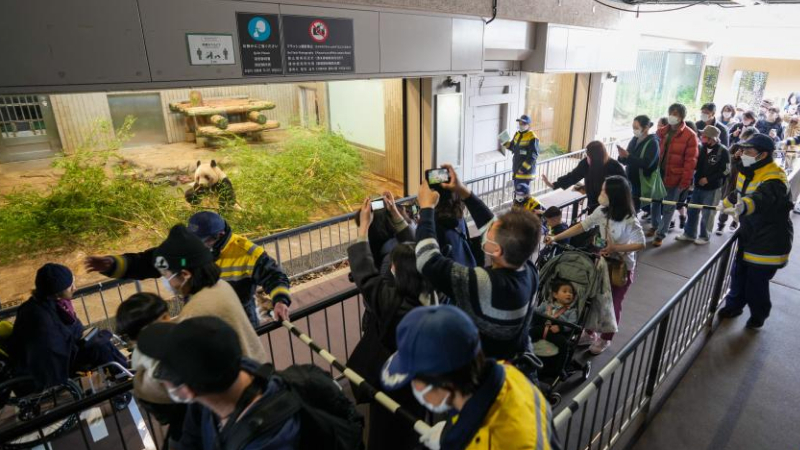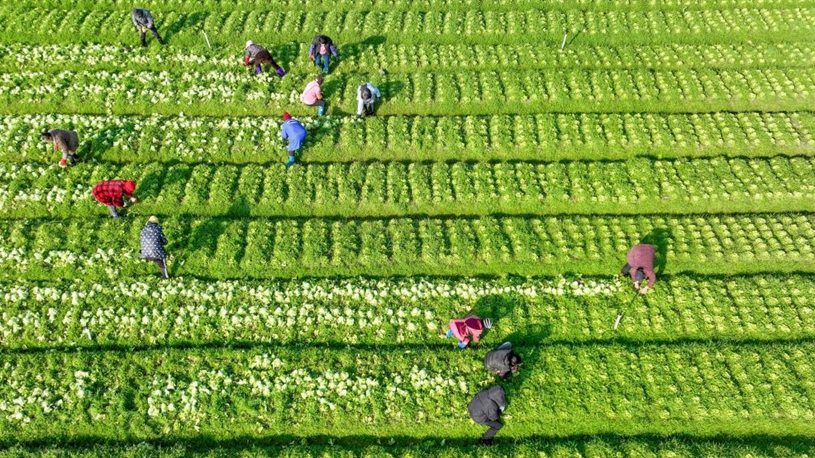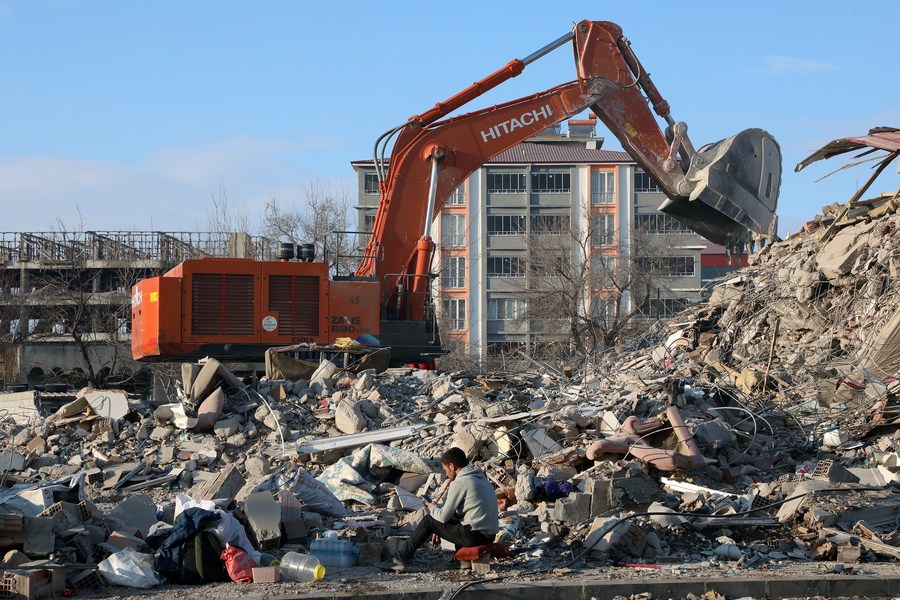
A man sits near the rubble of a destroyed building in the quake-hit city of Kahramanmaras, Türkiye, Feb. 19, 2023. (Photo by Mustafa Kaya/Xinhua)
The European Centre for Disease Prevention and Control predicted that a surge of cholera cases in the affected areas is significantly possible in the coming weeks. Other food or waterborne diseases can also cause outbreaks in camps.
STOCKHOLM, Feb. 20 (Xinhua) -- The next two to four weeks may see the emergence and spread of infectious diseases in the quake-stricken areas in Türkiye and Syria, the European Centre for Disease Prevention and Control (ECDC) said on Monday.
"Food and water-borne diseases, respiratory infections and vaccine-preventable infections are a risk in the upcoming period, with the potential to cause outbreaks, particularly as survivors are moving to temporary shelters," it said in a news release.

Photo taken on Dec. 8, 2022 shows an exterior view of the headquarters of the European Centre for Disease Prevention and Control (ECDC) in Stockholm, Sweden. (Photo by Wei Xuechao/Xinhua)
The ECDC said that "the damaged utility infrastructure, including water and electricity, causing limited access to clean water, inadequate sanitation and hygiene facilities, improper refrigeration and cooking systems may increase the occurrence and transmission of food-and waterborne illnesses."
The agency predicted that a surge of cholera cases in the affected areas is a significant possibility in the coming weeks. Other food and/or waterborne diseases, such as hepatitis A, norovirus and rotavirus, can also cause outbreaks in camps.
Moreover, the agency said respiratory infections, such as COVID-19, seasonal influenza and other respiratory viruses are "a particular concern" to the very young and the elderly, who are more vulnerable to complications.
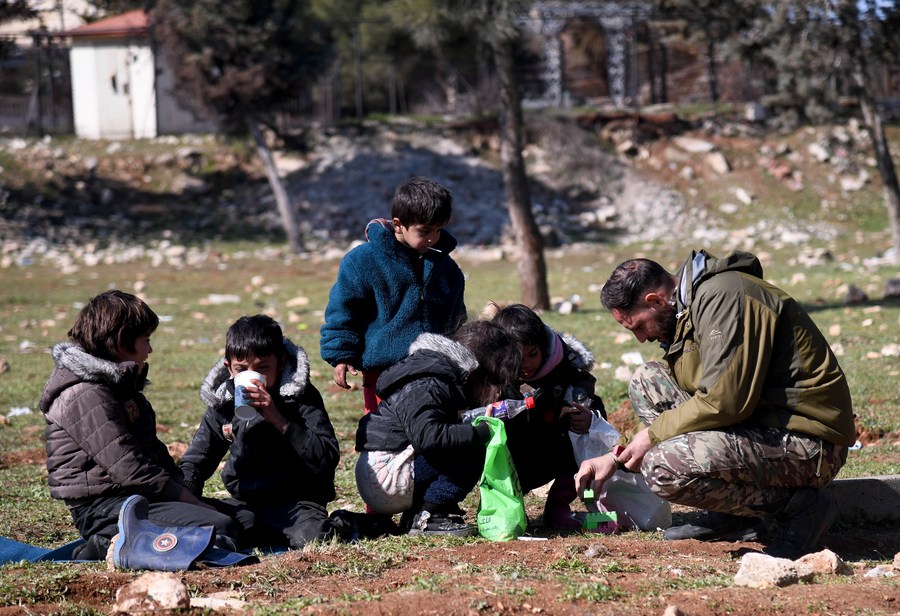
Displaced children are seen at a public park in Aleppo, Syria, on Feb. 16, 2023. (Str/Xinhua)
"Crowding conditions in temporary settlements can increase the risk of transmission of vaccine-preventable diseases, such as measles, varicella, meningitis or poliomyelitis," it said.
"Rescuers are at increased risk of tetanus from injuries and open wounds caused by contact with debris," it added.
The ECDC said that "the availability of clean water and control of food handling are among the top measures to avoid the spread of these diseases." Continuity of routine vaccinations should be ensured, and addressing prior vaccination gaps is also essential.
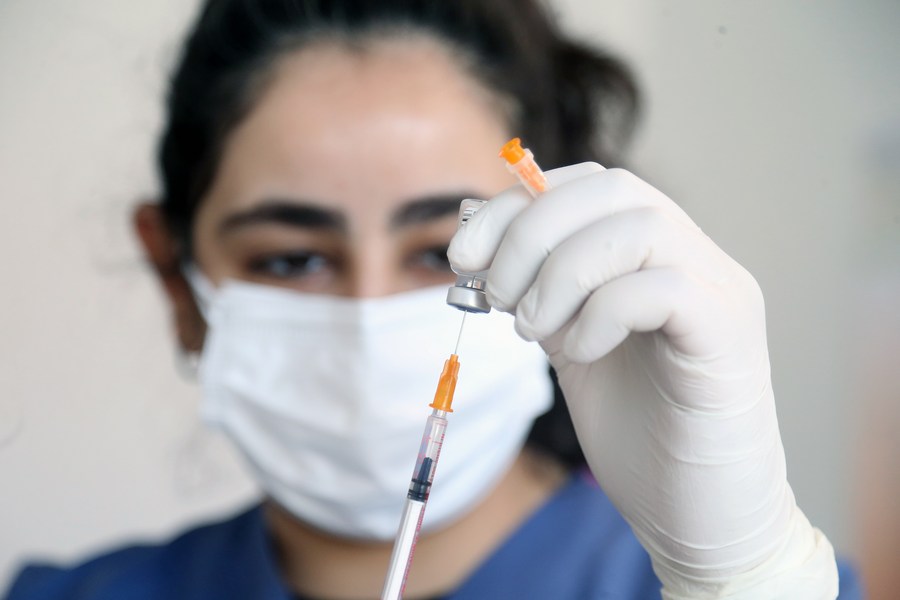
A nurse prepares a dose of the COVID-19 vaccine in Ankara, Turkey, on June 14, 2021. (Photo by Mustafa Kaya/Xinhua)
"Setting up health surveillance systems by public health staff will facilitate the early warning and detection of outbreaks," it said.
"International organizations are planning to deploy mobile laboratories in the affected areas, and they can also provide expert assistance to both affected countries," it added.■

